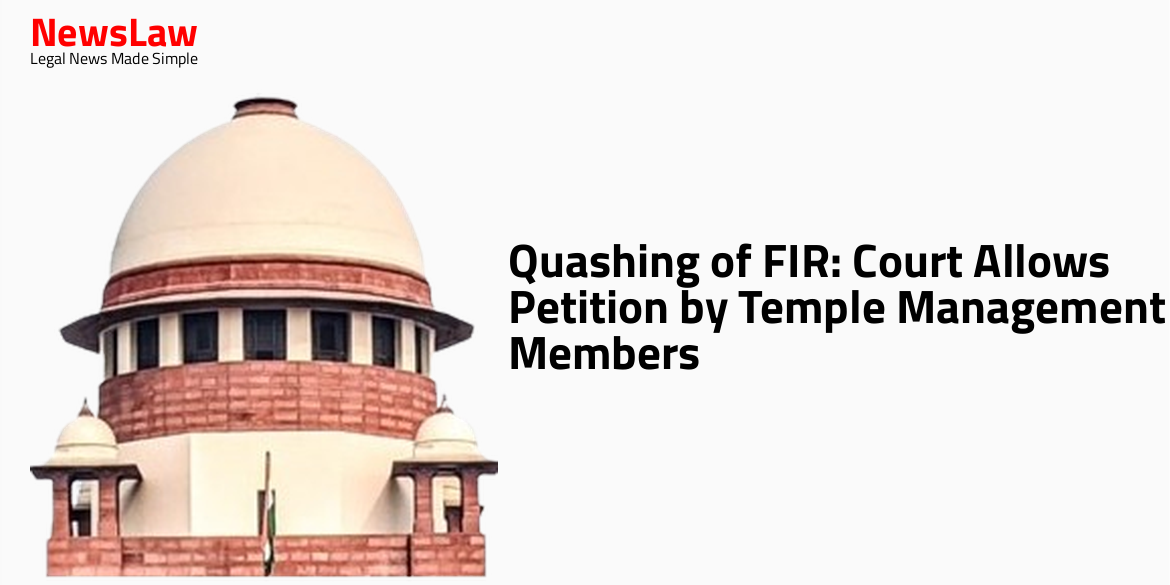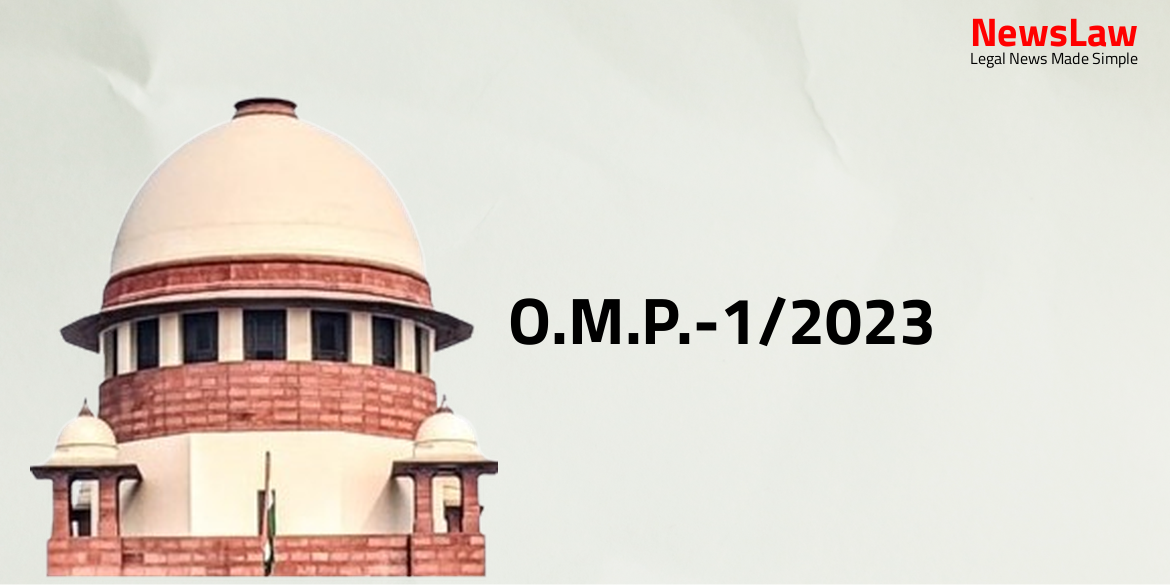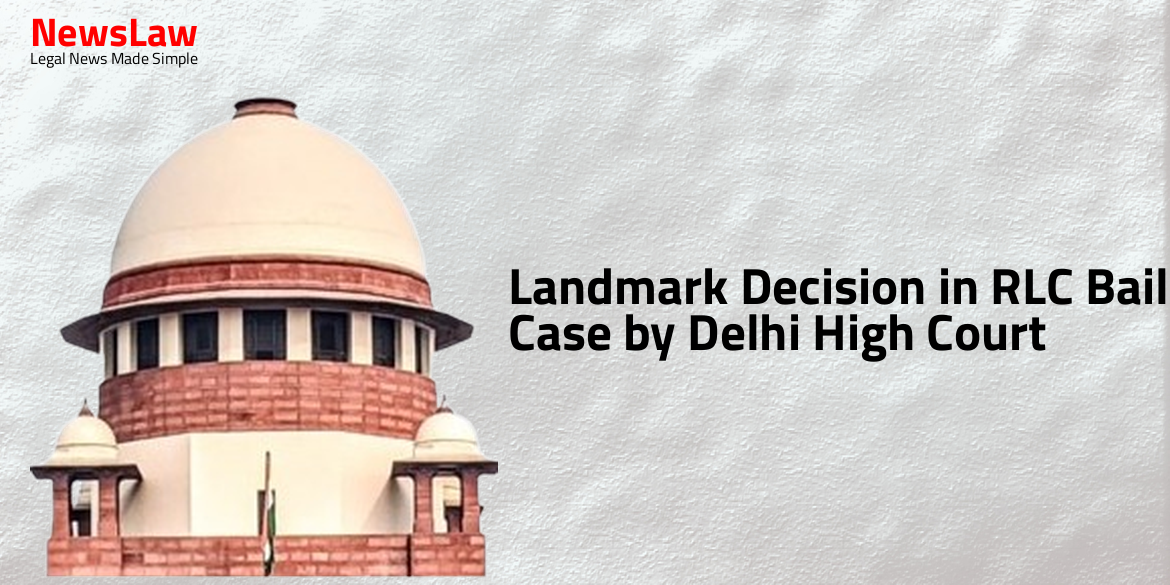In a recent judgment, the Delhi High Court has ruled in favor of the members of the temple management in a dispute over temple activities. The court allowed the petition seeking the quashing of the FIR, emphasizing the need to scrutinize complaints for any malicious intent. The case sheds light on the complexities of legal proceedings in matters involving personal vendettas. #LegalCase #DelhiHighCourt #TempleDispute
Facts
- Around 8-10 persons, including the petitioners, visited the temple during Arti time.
- They accused a woman of engaging in illicit activities at the temple.
- The petitioners allegedly used abusive language and physically removed the woman from the temple.
- They threatened to take her outside and called other women to beat her up.
- Petitioners claim the FIR is based on false and mala fide complaints by the woman.
- The FIR was filed based on the woman’s allegation that she was mistreated at the temple.
Arguments
- The petitioner argues that the FIR or charge-sheet should not be quashed based solely on the absence of any incident having taken place.
- The petitioner claims that the FIR is a result of a dispute over the temple’s management and is motivated by vengeance.
- The police have acknowledged this dispute when speaking to the complainant.
- According to the petitioner, the charge-sheet filed by the police admits the lack of evidence supporting the accusations from the complainant.
- The forensic report from the laboratory confirms that there were no alterations found in the CCTV footage presented by the petitioners to the police.
- While the counsel for the complainant suggests leaving evidentiary matters for the trial court to decide, the petitioner emphasizes that the charge-sheet relies solely on oral allegations by the complainant.
- The FIR and chargesheet cannot be quashed at this juncture according to the argument submitted
- Citing the Supreme Court judgment in State of Punjab v. Gurmit Singh & Ors. (1996) 2 SCC 384, the respondent’s counsel argues that the victim’s testimony in sexual assault cases does not require additional corroboration for conviction.
Analysis
- The accused can invoke inherent powers under Section 482 of Cr.P.C. for quashing criminal proceedings if they are frivolous or vexatious.
- The court must carefully examine the FIR/complaint if such grounds are raised by the accused.
- When proceedings are instituted with an ulterior motive like personal vengeance, the complainant ensures a well-drafted FIR/complaint.
- The evidence in the case is contrary to the allegations made by the complainant.
- CCTV footage submitted by the petitioners is found to be genuine.
- The Supreme Court has carved out exceptions where complaints are filed with malicious intent to settle personal scores; in such cases, the court has a duty to quash the complaint to prevent harassment of the accused.
- The Court must ensure that the allegations in the FIR disclose the necessary elements to constitute the offense.
- In frivolous or vexatious proceedings, the Court must carefully consider all attending circumstances beyond mere averments.
- The power under Section 482 of the CrPC to quash an FIR should be used sparingly, especially in cases where the allegations are made with malicious intent to harm the accused out of personal grudge.
- The charge sheet filed indicates a lack of evidence to support the complainant’s allegations.
- The rights of the accused must be equally protected, especially in the presence of an ongoing dispute between the parties related to temple management.
- Merely looking at the averments in the FIR is not sufficient to determine if the essential ingredients of the offense are present; the Court must consider the overall circumstances.
- Testimony of the prosecutrix/victim may be sufficient in some cases to prove the charge against the accused.
- Not all cases fall under this category, including the present case.
- If the evidence in the charge sheet does not establish a case against the accused or is malicious, the court should consider quashing the complaint or FIR.
Decision
- Petitioners filed a petition seeking quashing of FIR No. 91/2020 registered at Police Station: Kotwali, North District, Delhi.
- The FIR was registered under Sections 354/354A/323/509/506/34 of the IPC.
- The charge-sheet against the petitioners has been quashed by the court.
- The petition has been allowed by the court.
Case Title: CHANDER SHEKHAR YADAV & ORS. Vs. THE STATE (NCT) OF DELHI & ANR. (2024:DHC:4007)
Case Number: CRL.M.C.-5539/2022



